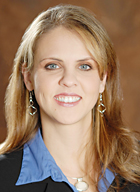
While CMS tries to figure out how to proceed with the manual medical review process, we continue to track our caps and apply our modifiers. In the meantime, has anyone noticed how our typical Medicare Part B patients have become more medically complex than just a few years ago?
To qualify for the automatic exceptions, the ICD-9 codes are chosen based on the assumption that the co-morbidities, medical complexities and primary conditions will directly impact the rate of recovery. Therefore, patients with these approved ICD-9 diagnoses are expected to take longer to recover and, therefore, require higher reimbursement due to increased services compared to a patient without those complications.
My personal opinion for the increase in medically complex part B patients is due to the hospital observation status issues. If only I had a nickel for every time a colleague told me stories about their local hospitals keeping patients for several days through observation status. Or the situation where the patient is at the hospital for three midnights, re-admits to your facility, begins Part A benefits, and a few days later it’s discovered they were kept for observation. The Medicare Part A changes to Part B, but our plan of care and treatment approaches and therapy minutes should not change based on insurance issues.
As we continue to justify our role for therapy and proof of medical necessity, it’s important to document the hospital interventions, diagnoses, and overall care received. This will help to justify our reason for skilled treatment, frequency, duration, use of automatic exceptions, and manual medical reviews.
I think as the industry continues to move forward, and healthcare reform is a primary focus, it’s also important to think about exactly who our patients are, their clinical and medical needs, and the services available to them.
Shelly Mesure (“Measure”), MS, OTR/L, is the senior vice president of Orchestrall Rehab Solutions and owner of A Mesured Solution Inc., a national rehabilitation management consultancy. A former corporate and program director for major long-term care providers, she is a much sought after speaker and writer on therapy and reimbursement issues.




